Zirconium 702 705 Mechanical Properties
Table 4 lists physical properties data for Zirconium alloys. The modulus of elasticity of Zirconium alloys decrease rapidly at elevated temperature as shown in Table 4. Zirconium alloys have a density that is over 20% less than nickel and iron based stainless alloys.
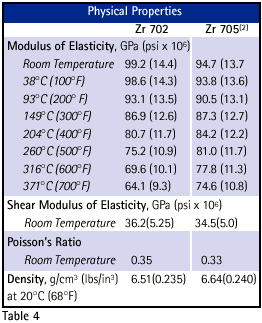
Table 5,6 and 7 show the typical longitudinal mechanical properties data for Zirconium alloys in the annealed condition. The data shown are the average of the longitudinal and transverse values at specific temperatures. The yield strength and elongation data were determined using the 0.2% offset method. Like most non-ferrous metals, Zirconium alloys exhibit a gradual transition from elastic to plastic behavior. Some of the physical properties and mechanical properties of Zirconium are affected by its anisotropy. These properties include thermal expansion, yield strength, ultimate tensile strength, elongation, notch toughness, and bend ductility and their magnitudes vary with the direction of the material.
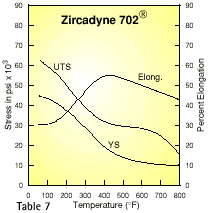 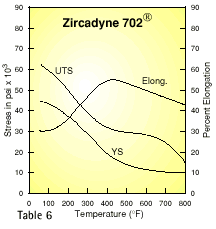
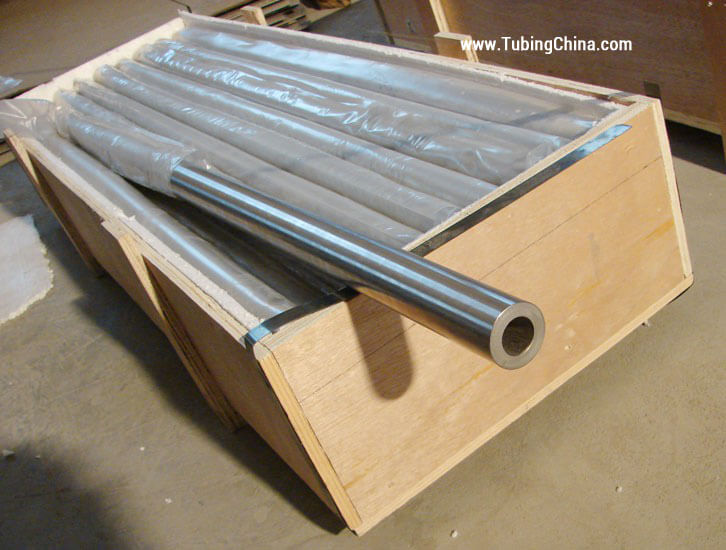 ASTM B658 ASTM B523 ZR702 ZR705 Pipe
ASTM B658 ASTM B523 ZR702 ZR705 PipeThe ductility in both Zirconium alloys increases significantly with temperature. This improved ductility combined with a lower yield strength at 400 °F provides improved conditions for severe forming operations. Zirconium alloys work harden rapidly.
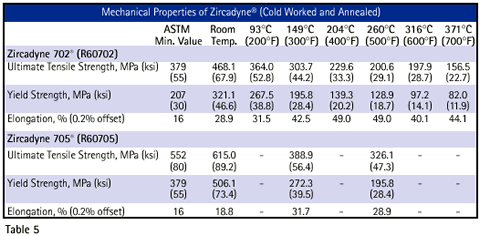
A stress relief heat treatment at 565 °C (1050 °F ± 50 °F)for 1/2 to 1 hour at temperature can be utilized to relieve the residual stresses.
Related References:
Zirconium Zirkonium Zircone
Corrosion Resistance of Zirconium
Physical Properties of Zirconium
Zirconium 702 705 Mechanical Properties
Zirconium 702 705 ASME Allowable Stress
|
